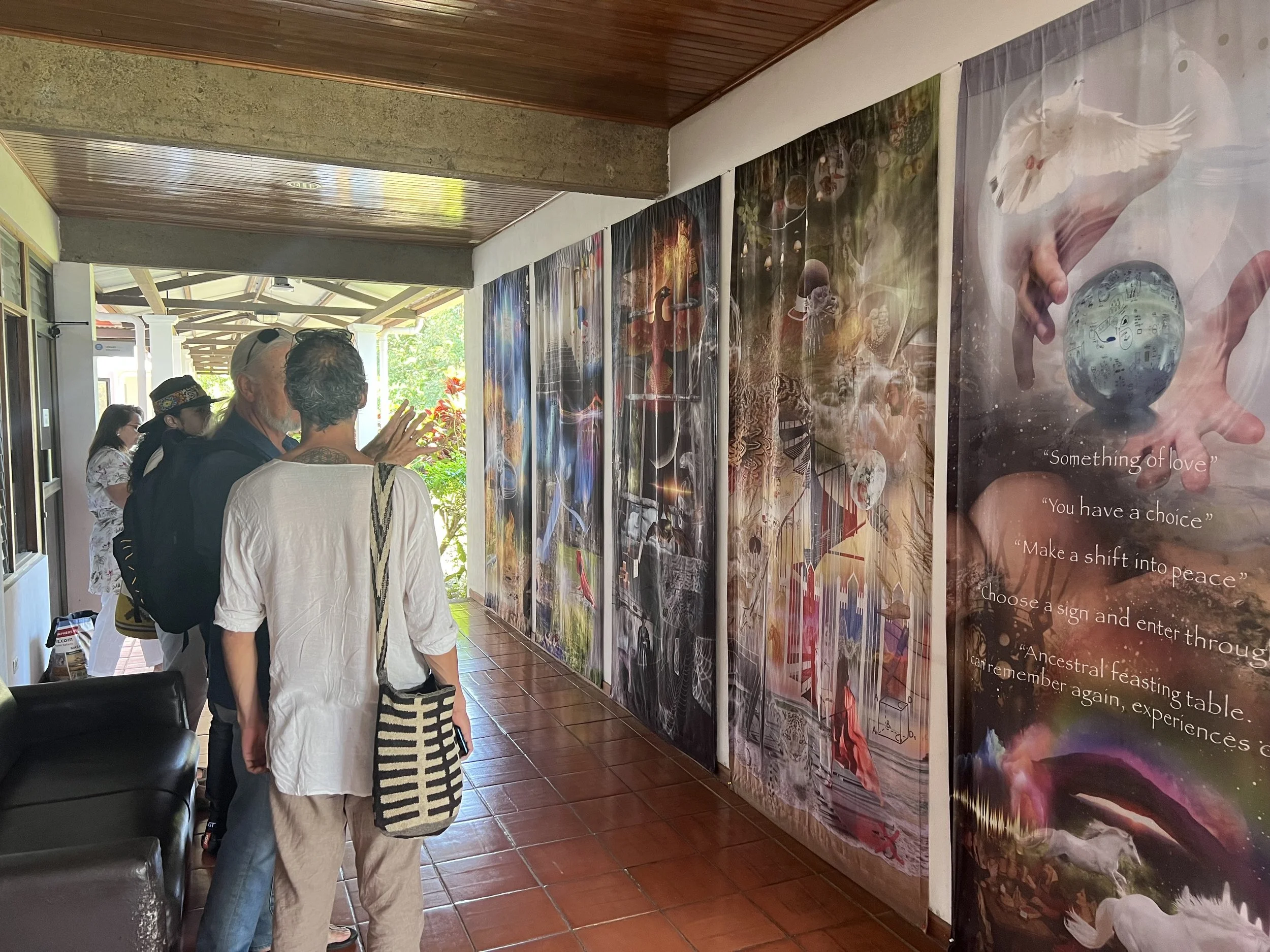What to expect:
[working idea] A program of transformation and what life is like while it happens
pictured: “Dream Banners” from the class Bridging Paradigms: The Role of Dreams in a hallway at the University for Peace. Created by Veronica Coetzer.
LOGISTICS
-
A student visa is not mandatory to enter Costa Rica. One can enter on a tourist visa and later convert to a student visa through the University with UPEACE’s assistance. Check your country’s visa process to ensure you have the proper documentation. Students are not allowed to work in Costa Rica on either a tourist or student visa.
-
The housing process is guided by, but not provided by the University. Upon acceptance, students will be granted access to a housing portal where they can find landlords who have previously rented to UPEACE students. There are options to live with a host family, roommates or individually— the housing selection process falls on the student to secure their lodging. There are no dormitories or on-campus housing. Many students move multiple times a year to experience various housing arrangements or different parts of town. The majority of students live in Cuidad Colon or El Rodeo.
-
FOR CLASS: The ISPS Program will require students to travel throughout Costa Rica to visit with Indigenous communities, and will be included as part of a class credit. Additional travel to ones’ ancestral lands is highly recommended but not covered by tuition.
DAILY TRANSPORTATION: UPEACE provides a private schoolbus that will pick up and drop off students at the University at designated times. A bus schedule as well as a list of designated stops will be given to students at the time of orientation.
PUBLIC TRANSPORTATION: The public bus system is the primary form of transportation between towns. Uber and DiDi are available in the country but are not legally recognized forms of travel— orange or red taxis are the official, “lawful” forms of travel outside of the public bus. Many students network with the local taxi drivers to obtain their WhatsApp numbers and arrange rides.
-
Rechargeable SIM cards are available for purchase at the airport, mall, and various shops. A Costa Rican SIM card is recommended for a more reliable signal.
